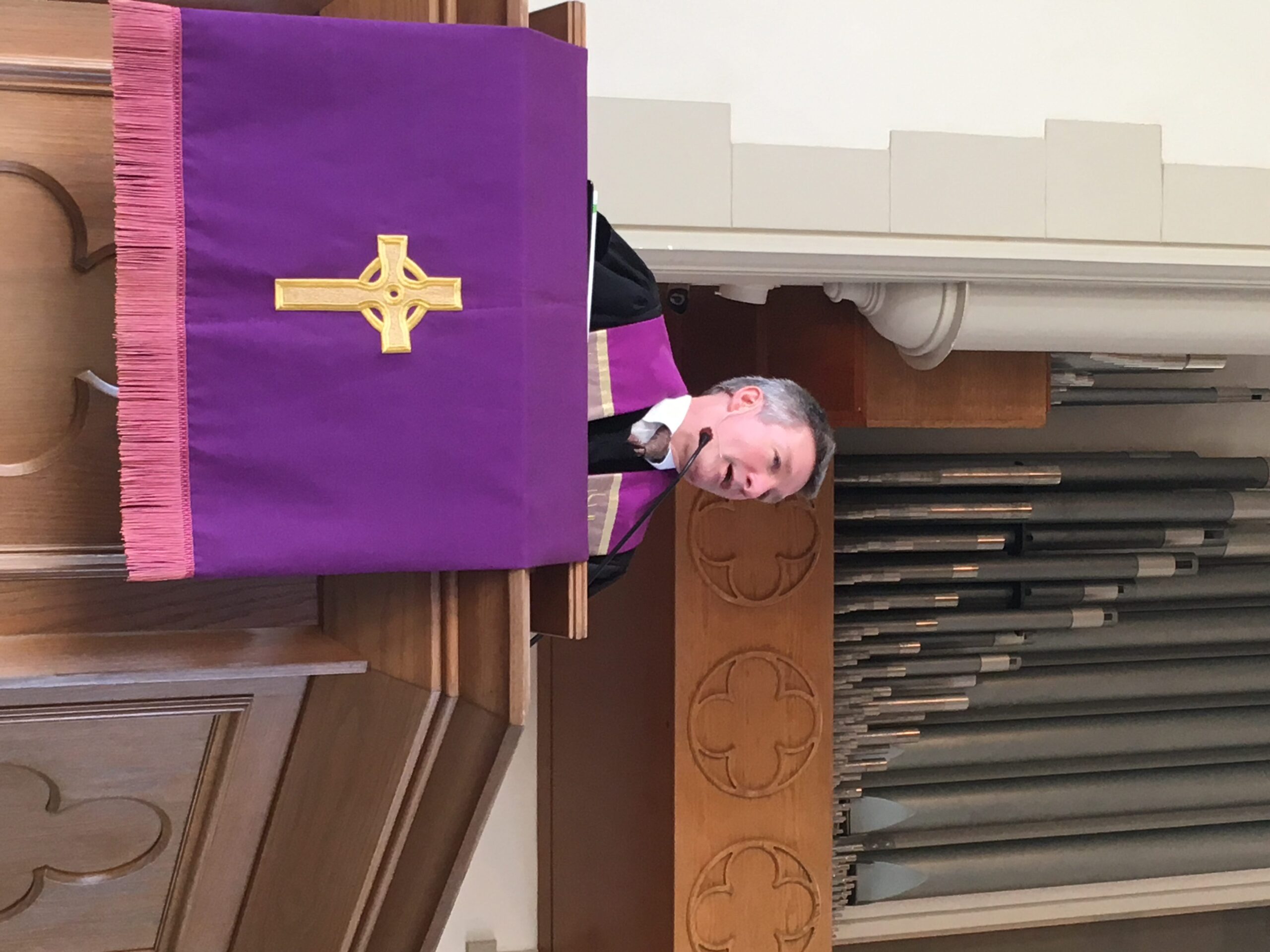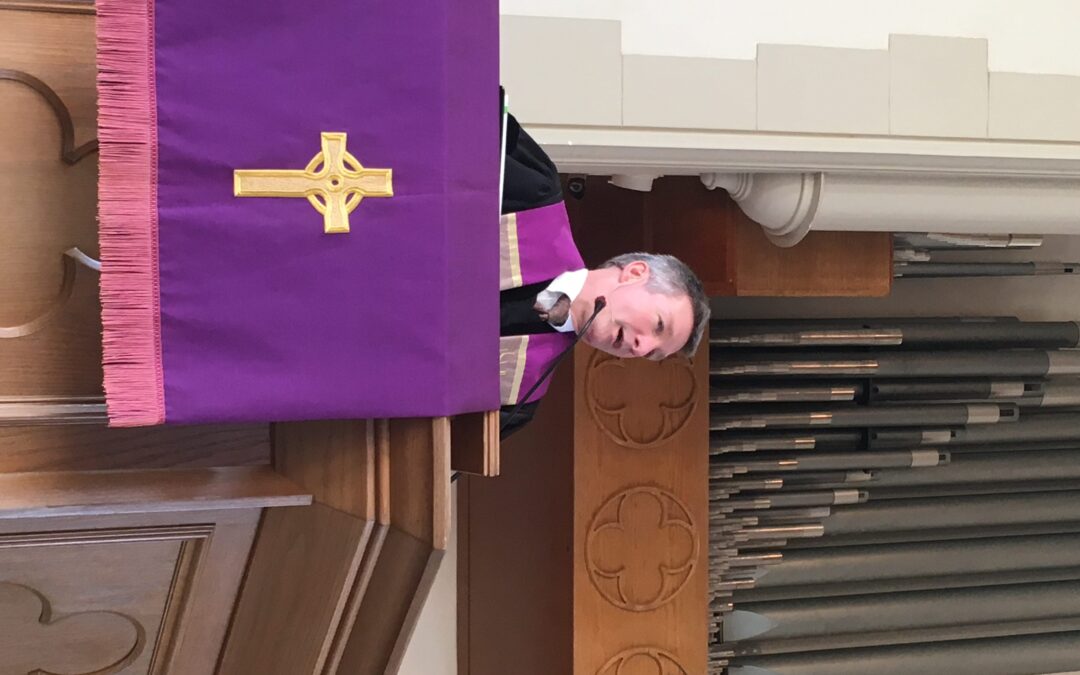 We will inevitably face temptations as we attempt to walk in faith.
We will inevitably face temptations as we attempt to walk in faith.
We pray that we may be fully aware of our temptations, name them and claim them,
and ask God’s help in overcoming them.
Gen 2:15-17
The Lord God took the man and put him in the garden of Eden to till it and keep it.
And the Lord God commanded the man, ‘You may freely eat of every tree of the garden;
but of the tree of the knowledge of good and evil you shall not eat,
for in the day that you eat of it you shall die.’
Matt 4:1-11
Then Jesus was led up by the Spirit into the wilderness to be tempted by the devil.
He fasted for forty days and forty nights, and afterwards he was famished.
The tempter came and said to him,
‘If you are the Son of God, command these stones to become loaves of bread.’
But he answered, ‘It is written, “One does not live by bread alone,
but by every word that comes from the mouth of God.” ’
Then the devil took him to the holy city and placed him on the pinnacle of the temple,
saying to him, ‘If you are the Son of God, throw yourself down; for it is written,
“He will command his angels concerning you”, and
“On their hands they will bear you up, so that you will not dash your foot against a stone.” ’
Jesus said to him, ‘Again it is written, “Do not put the Lord your God to the test.” ’
Again, the devil took him to a very high mountain
and showed him all the kingdoms of the world and their splendour; and he said to him,
‘All these I will give you, if you will fall down and worship me.’
Jesus said to him, ‘Away with you, Satan! for it is written,
“Worship the Lord your God, and serve only him.” ’
Then the devil left him, and suddenly angels came and waited on him.
We are only truly tempted to that which is within our power.
I could say that I was tempted to be on the starting squad
for the Atlanta United soccer team tonight in their season-opener at Bobby Dodd stadium,
but, in reality, that particular privilege is not within my power,
not within my limited and quickly diminishing soccer skills.
But we can begin to gain some measure of power over what truly does tempt us
when name and claim our temptations, and ask God’s help in overcoming them.
12 Step Groups know fully well the power of temptations.
The first step, I believe, of 12 step groups is to acknowledge your own powerlessness
over that which tempts you.
The second step is to turn yourself, your will and your ways,
over to a power greater than yourself.
But what human being wants to admit powerlessness?
And what human being really wants to turn control of their life over to another?
You may be tempted to stress over your future,
to worry incessantly about what the coming months or years may bring.
Or, you may be tempted to dwell on your past,
to grieve endlessly over something that has happened, or to hold onto past resentments,
or not enjoy the present because you are always looking back to what once was.
One of our Faith in Real Life small group members claimed last week that,
when we live in the past, we invite depression;
when we live in the future, we invite anxiety;
but when we live in the present, we live in peace.
(Vernon Gramling, FIRL blog, March 3, 2017)
We speak of Lent as a time of spiritual preparation, a time for self-examination and repentance.
Our theme at DPC for Lent this year will be “Walking in Faith”.
If we are going to walk in faith, trusting God through our days,
one of the first steps we must take is to face our temptations.
Facing temptations requires a bit of self-awareness.
We are not always fully aware of that which tempts us.
We are not always aware of actions or attitudes that may hurt or destroy
or simply lead ourselves and others astray.
Sometimes, awareness and clarity can only come during a time of wilderness.
Richard Foster, author of many books on spirituality,
wrote that his time of wilderness seemed to last forever.
He was unable to preach or to teach or to write.
Though he was surrounded by family, yet he was very much alone.
He called his experience “the dark night of the soul.”
He writes, “The dark night to which God calls us is not necessarily bad or destructive.
On the contrary, it can be something welcome”.
The dark night of the soul can become a welcome experience, he says,
such as a sick person might welcome a surgery that promises well-being and health.
The purpose of the dark night of the soul is “not to punish us or afflict us but to set us free.”
Foster called it “a divine appointment, a privileged opportunity to draw close to God”.
(Richard Foster, Celebration of Discipline, HarperSanFrancisco, 1988, p.102)
Kathleen Norris wrote, “God’s grace is made known especially in those wilderness experiences.”
Norris, a popular author on spirituality, wrote that her most spiritual activity
over a particular year of her life was taking care of her sick husband,
giving him baths, helping him change his clothes, cleaning up after him.
She said she hadn’t been very good at praying her beloved psalms,
but she knew well the desperate prayer of the caregiver.
An interviewer, asking about some of her well known books –
Dakota, Amazing Grace, and The Cloister Walk –
called her “a docent of hope” for all Christians.
She found herself laughing because she did not feel much like a docent of hope;
she felt like she almost had no hope at all.
“It is the comedy of grace”, she writes. The comedy of grace is that
it “so often it must come to us as loss and failure and cleaning commodes
because if it came as success and sweet smelling flowers we wouldn’t be grateful for it.
We would, as we are wont to do, take personal credit for the unwarranted gifts of God.
For grace to be grace it must give us things we didn’t know we needed,
such as pain, loss, illness, a time of spiritual drought.”
She writes, “As we stumble through the altered landscape of our lives,
we find that God is enjoying our attention as never before and maybe that’s the point,” she says.
In these times of wilderness, we finally drop the mirror, stop looking at ourselves,
and find ourselves looking to God. It’s a divine comedy, she writes, a comedy of grace.
(Christian Century, Jan. 11, 2003, p.8)
Just after his baptism by John in the River Jordan,
the Spirit of God drove Jesus into the wilderness.
I am fairly certain that all Christians will experience a wilderness of some kind
in the course of their lives.
Even for those who will not have much tragedy or will never seriously question their faith,
still, most will endure some sort of spiritual wilderness at some point.
The timing often comes, as it did for Jesus, after a time of spiritual high.
After a meaningful life experience, or after someone has just joined a new church,
or after the birth of a child or had some other great life adventure,
we may find ourselves plunged into an unfamiliar place.
Usually wilderness experiences entail temptation.
We are often tempted to do things we would not normally do in a time of wilderness.
We may feel empty, in need of sustenance, in the wilderness.
We may try to fill the craving inside with things that will not satisfy.
In a spiritual wilderness, we may be tempted to judge others,
or to blame someone else for our troubles.
In a spiritual wilderness, we may be tempted to live in fear or anxiety,
or may find ourselves continually discontent with our circumstances.
We may find it difficult to be grateful for anything.
Discouragement and downheartedness may be a part of a spiritual wilderness,
attitudes which can be difficult to shake.
The wilderness can become a place of danger.
One young adult told me that his wilderness experience was filled
with all the people around him encouraging him to do things that were not in his best interest.
He found himself in a time of real physical danger.
For some, their time of wilderness was when they considered taking their own life.
Statistics reveal that over twenty percent of persons – one in five persons –
consider suicide at some point; often these feelings come during a time of wilderness.
Physical suffering may bring about feelings of wilderness.
Loneliness can bring a time of spiritual wilderness.
John Chrysostem, an early church father, claimed,
“We are tested in loneliness, for it is there most especially that the devil assails us.
When he sees us alone and by ourselves, as was Eve, apart from her husband,
the temptation becomes the strongest.”
Wilderness experiences and the temptations that come with them vary from person to person.
For some, the wilderness will last a few days or a few weeks,
for others months, for others years even.
And yet the wilderness experience can become, by God’s grace, a time of new strength.
We may discover unexpected sustenance in the midst of temptation.
Before he could begin his earthly ministry,
Jesus had to deal with three significant temptations in the wilderness.
He was tempted to economic power – to make bread for himself and feed the world.
He was tempted to spiritual power – to give a great display of his spiritual power
and make people turn to him immediately.
He was tempted toward political power – to take a political office,
to become the earthly king of earthly kings.
We too are tempted economically – with what to do, or not do, with our finances and resources.
We are tempted regarding personal power – with how we manipulate others,
or allow others to manipulate us.
We are tempted regarding positional power – how we use our roles, or do not use our roles,
for the sake of self and others.
Three times Jesus was faced with tremendous temptation.
Three times he responded by quoting Scripture.
Jesus’ defense, in his weakened physical state,
was to stand strong on the faith of those who had come before him.
Of course, we cannot use Holy Scripture as a sure defense if we do not know it,
if we do not read it and study it and meditate on its meaning.
Ultimately, in the wilderness, we realize our dependence.
We realize that we are not independent individuals who can do everything for ourselves.
We need grace from God just as much as we need daily bread to sustain us.
In order to survive and thrive in a challenging world,
we will need more than bread alone.
And so we come to the table today.
We come to this table in need of spiritual sustenance, needing to be fed.
We come to the table to be strengthened for the days ahead.
Whether you feel strong today or weak,
whether you feel oriented and life is good, or perhaps disoriented,
in the midst of some wilderness,
come to the table to be fed, to receive grace anew, to receive strength for the journey.
As we walk this Lenten journey together,
we remember that the God who has kept and carried us this far,
will be with us in the days to come, and will enable us to face, and even overcome,
every temptation.
To God be the glory. Amen.
Rev. Dr. Todd Speed
Decatur Presbyterian Church
Decatur, Georgia
March 5, 2017


